Yoga Blog
Nourish Your Yoga Journey: Essential Vegan Nutrition for Enhanced Practice
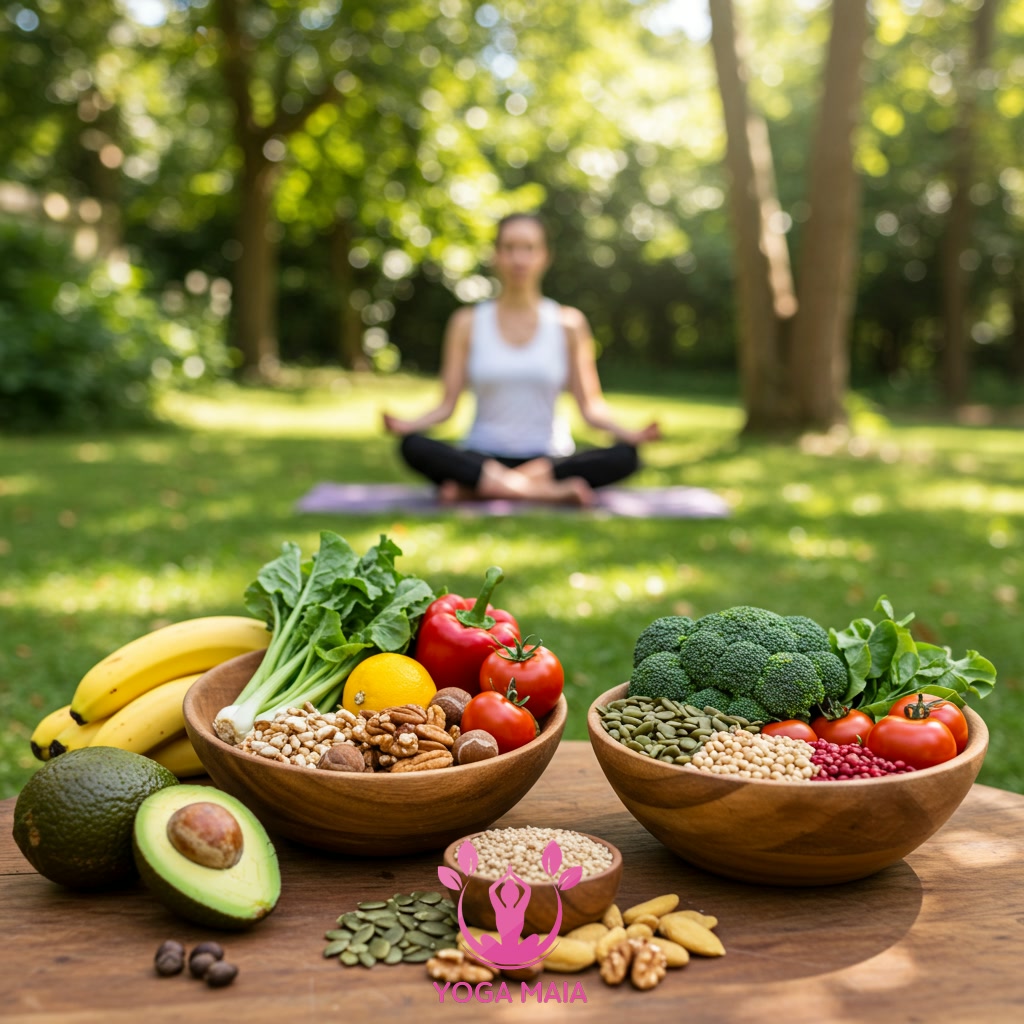
This content explores the vital role of vegan nutrition in supporting and improving one’s yoga practice. It delves into how plant-based eating can provide the necessary energy, flexibility, and focus required for a deeper yoga journey. The text highlights essential nutrients and dietary strategies for individuals combining a vegan lifestyle with regular yoga. It aims to guide practitioners on optimizing their well-being to enhance their physical and mental engagement with yoga.
Table of Contents
- Section 1: The Synergy of Vegan Nutrition and Yoga
- Section 2: Why Choose a Vegan Diet for Enhanced Yoga Practice?
- Section 3: Key Vegan Nutrients for Energy, Flexibility, and Recovery
- Section 4: Crafting a Balanced Vegan Meal Plan for Yogis
- Section 5: Hydration and Timing Your Nutrition for Optimal Sessions
- Section 6: Integrating Vegan Nourishment into Your Yoga Lifestyle
Section 1: The Synergy of Vegan Nutrition and Yoga
Exploring the connection between what we eat and how we practice reveals a powerful synergy. Vegan nutrition, rich in whole foods, provides the sustained energy and vital nutrients essential for the physical demands of yoga. A plant-based diet often contributes to greater flexibility, reduced inflammation, and improved digestion, all of which directly benefit the body’s ability to move freely and comfortably through poses. Beyond the physical, this dietary approach can also foster a sense of lightness and clarity, aligning with the mental and spiritual aspects of yoga, enhancing focus and presence on the mat. Thus, embracing veganism can deeply nourish the body and mind, creating an optimal foundation for a more profound and connected yoga journey.
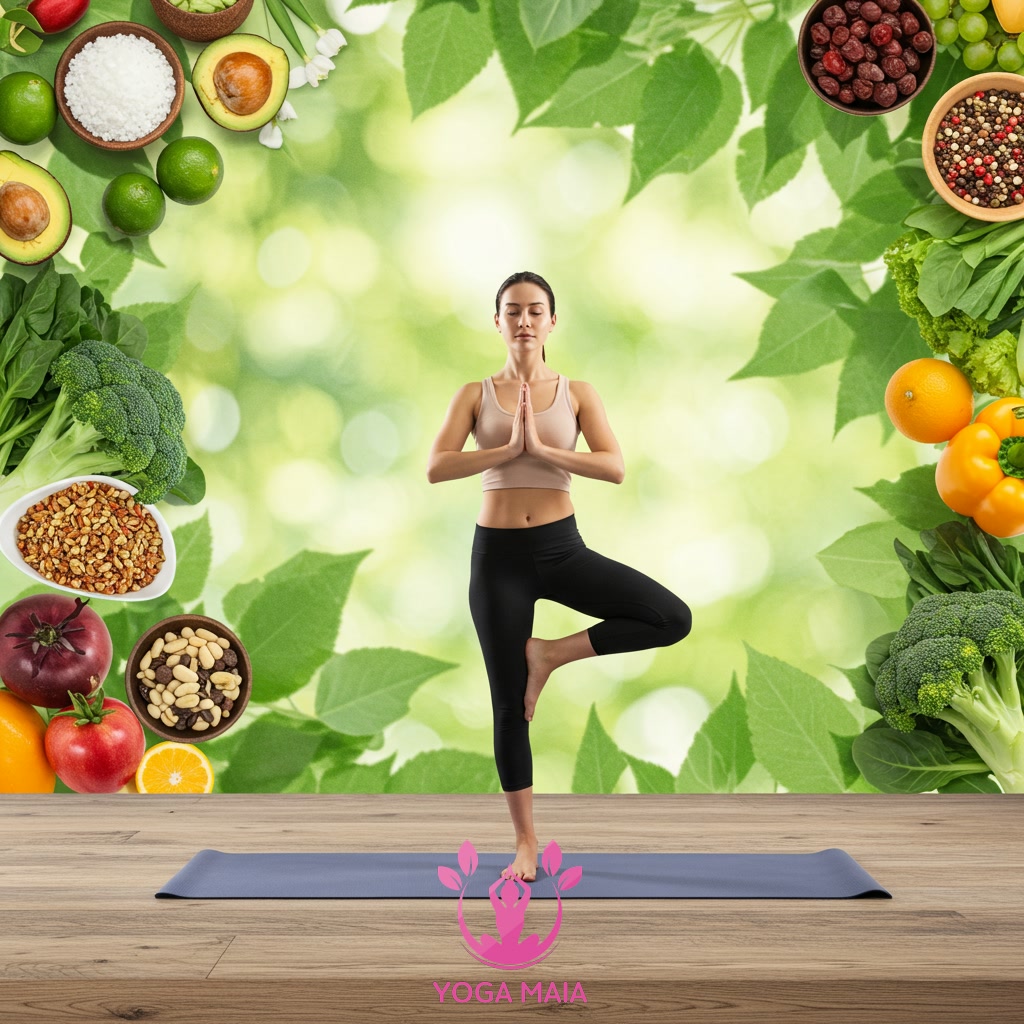 The Synergy of Vegan Nutrition and Yoga
The Synergy of Vegan Nutrition and Yoga
Section 2: Why Choose a Vegan Diet for Enhanced Yoga Practice?
Building upon the understanding that diet profoundly impacts our physical and mental state, choosing a vegan diet offers specific advantages for enhancing your yoga practice. Plant-based foods, rich in complex carbohydrates, provide the sustained energy needed for longer holds and more dynamic flows without the heavy feeling often associated with animal products. The high fiber content promotes digestive ease, contributing to a sense of lightness and comfort during poses that involve twisting or inversions. Furthermore, the abundance of antioxidants and anti-inflammatory compounds in fruits, vegetables, nuts, and seeds can aid muscle recovery, reduce stiffness, and potentially increase flexibility. Many practitioners also find that aligning their diet with the principle of Ahimsa (non-violence), central to yoga philosophy, deepens their connection to the practice and fosters a greater sense of clarity and peace, further enhancing focus and presence on the mat.
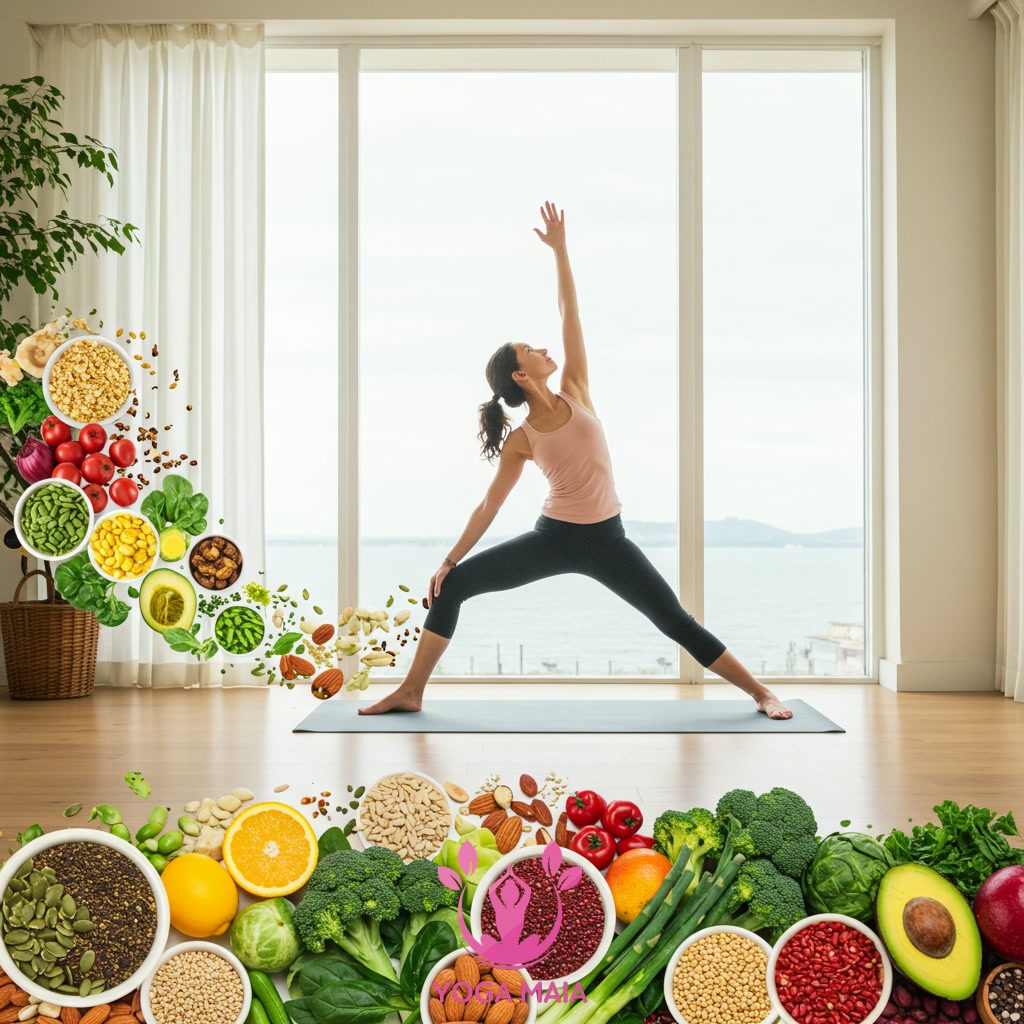 Why Choose a Vegan Diet for Enhanced Yoga Practice?
Why Choose a Vegan Diet for Enhanced Yoga Practice?
Section 3: Key Vegan Nutrients for Energy, Flexibility, and Recovery
To truly fuel your yoga practice on a vegan diet, focusing on key nutrients is essential for optimal energy, flexibility, and recovery. Sustained energy levels are crucial for longer holds and flows, provided by complex carbohydrates from whole grains, fruits, and vegetables, alongside vital micronutrients like B vitamins (especially B12, requiring supplementation or fortified foods) and iron from lentils, spinach, and fortified cereals. Flexibility is supported not just by consistent practice, but by adequate hydration and nutrients that promote joint health and reduce inflammation, such as Omega-3 fatty acids found in flax seeds, chia seeds, and walnuts. For efficient post-practice recovery, ensuring sufficient protein intake from diverse plant sources like beans, tofu, tempeh, nuts, and seeds is key for muscle repair, complemented by antioxidants from colorful produce to combat oxidative stress. Prioritizing these nutrient-dense foods helps build stamina, improve range of motion, and accelerate the body’s natural healing process, allowing for a more consistent and deeper yoga journey.
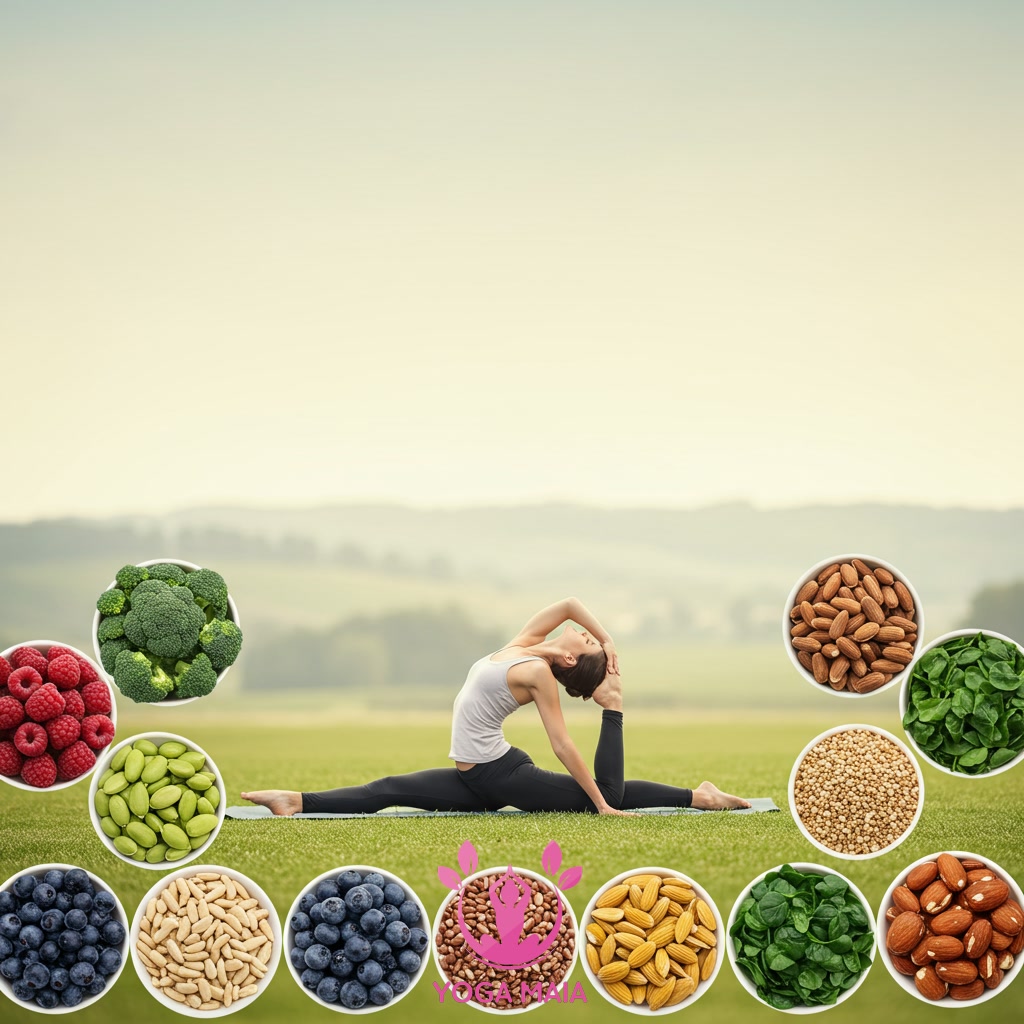 Key Vegan Nutrients for Energy, Flexibility, and Recovery
Key Vegan Nutrients for Energy, Flexibility, and Recovery
Section 4: Crafting a Balanced Vegan Meal Plan for Yogis
Building on the foundation of essential nutrients, crafting a balanced vegan meal plan involves strategically combining diverse plant-based foods throughout your day to ensure continuous energy and support for your yoga practice. A well-structured plan focuses on incorporating a variety of whole grains, legumes, vegetables, fruits, nuts, and seeds across meals and snacks. This diversity helps you meet your needs for complex carbohydrates for sustained energy during flows, sufficient protein for muscle recovery and strength, and healthy fats for joint lubrication and brain function. Planning ahead can prevent nutrient gaps and make it easier to access nourishing options, whether you’re heading to the studio or practicing at home, ultimately enhancing your focus and physical capacity on the mat.
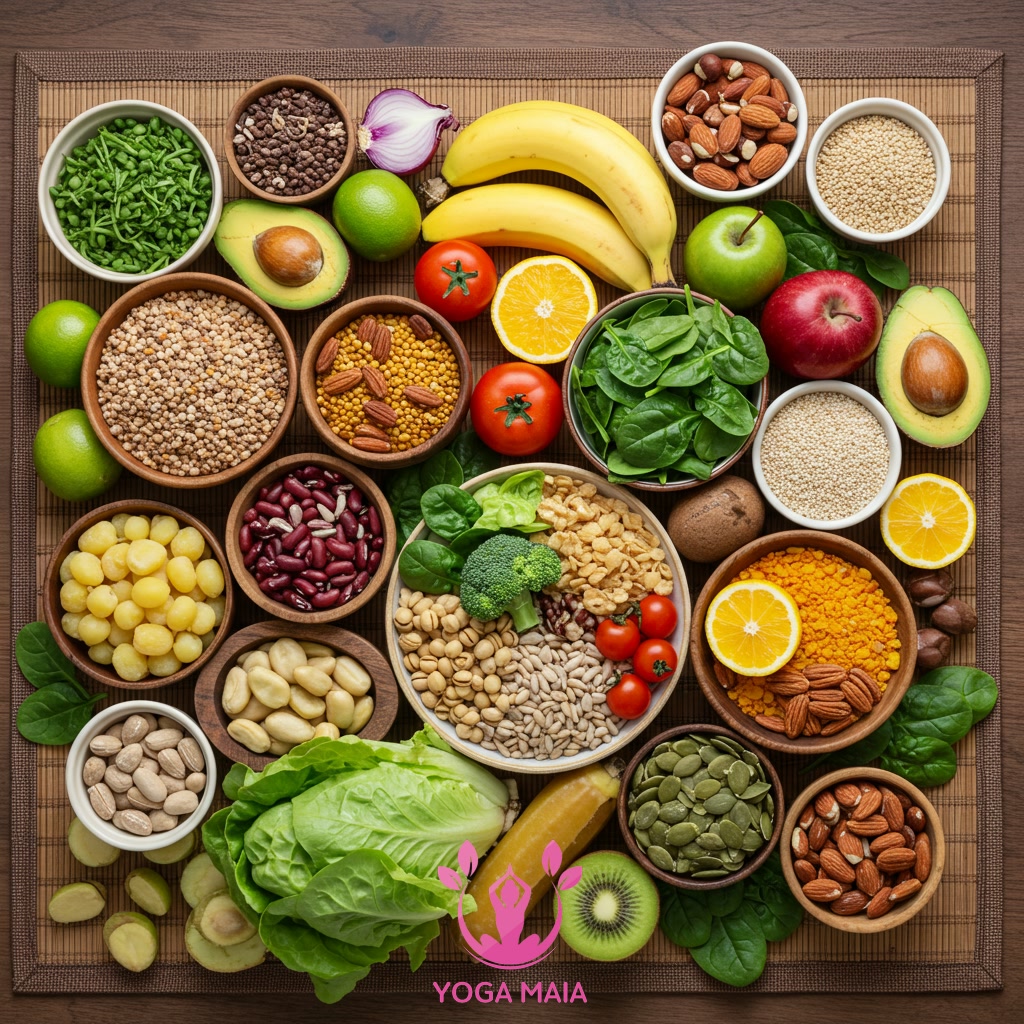 Crafting a Balanced Vegan Meal Plan for Yogis
Crafting a Balanced Vegan Meal Plan for Yogis
Section 5: Hydration and Timing Your Nutrition for Optimal Sessions
Hydration is absolutely fundamental to supporting your yoga practice. Adequate water intake ensures your joints remain lubricated and your muscles stay pliable, both critical for achieving depth and comfort in various poses. Proper hydration also prevents fatigue and helps maintain mental focus throughout your session. Beyond just drinking water, the timing of your vegan meals and snacks significantly impacts your energy levels and digestive comfort on the mat. Practicing yoga with a heavy stomach can be uncomfortable and restrict movement, while insufficient fuel might leave you feeling weak or lightheaded. It’s generally recommended to allow 1-2 hours after a light snack or 2-3 hours after a larger meal before practicing. Post-practice, refueling with a balanced vegan meal aids muscle recovery and prepares you for the rest of your day.
 Hydration and Timing Your Nutrition for Optimal Sessions
Hydration and Timing Your Nutrition for Optimal Sessions
Section 6: Integrating Vegan Nourishment into Your Yoga Lifestyle
Integrating vegan nourishment into your yoga lifestyle goes beyond simply eliminating animal products; it involves consciously planning your meals to support your physical and mental practice. Focus on incorporating a diverse array of whole, plant-based foods such as colorful fruits, vegetables, whole grains, legumes, nuts, and seeds. These provide the essential energy, vitamins, minerals, and fiber needed for sustained focus and flexible movement on the mat, as well as efficient muscle recovery afterward. Consider meal timing – consuming easily digestible, nutrient-dense foods a few hours before practice and replenishing with protein and carbohydrates post-yoga. Paying mindful attention to what and how you eat becomes an integral part of your yoga journey, deepening your connection to your body and enhancing your overall well-being.
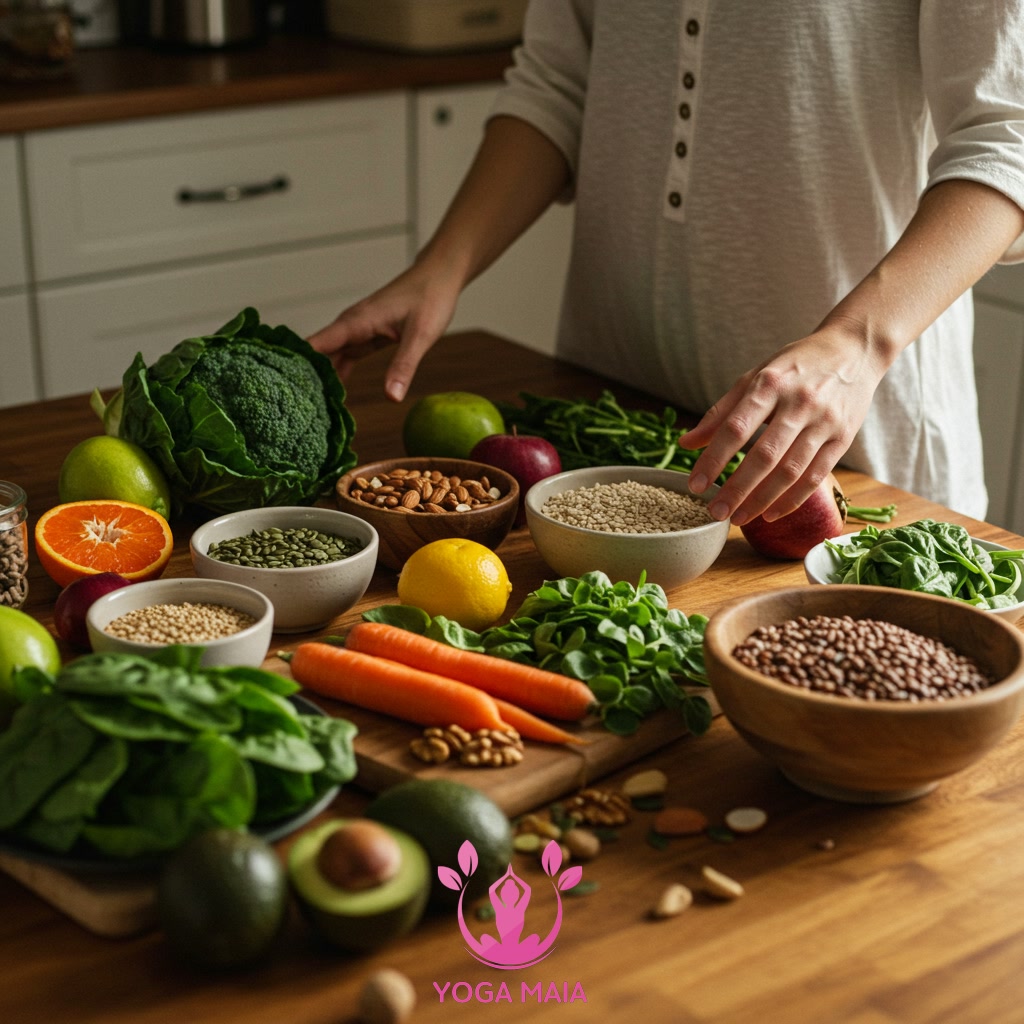 Integrating Vegan Nourishment into Your Yoga Lifestyle
Integrating Vegan Nourishment into Your Yoga Lifestyle












